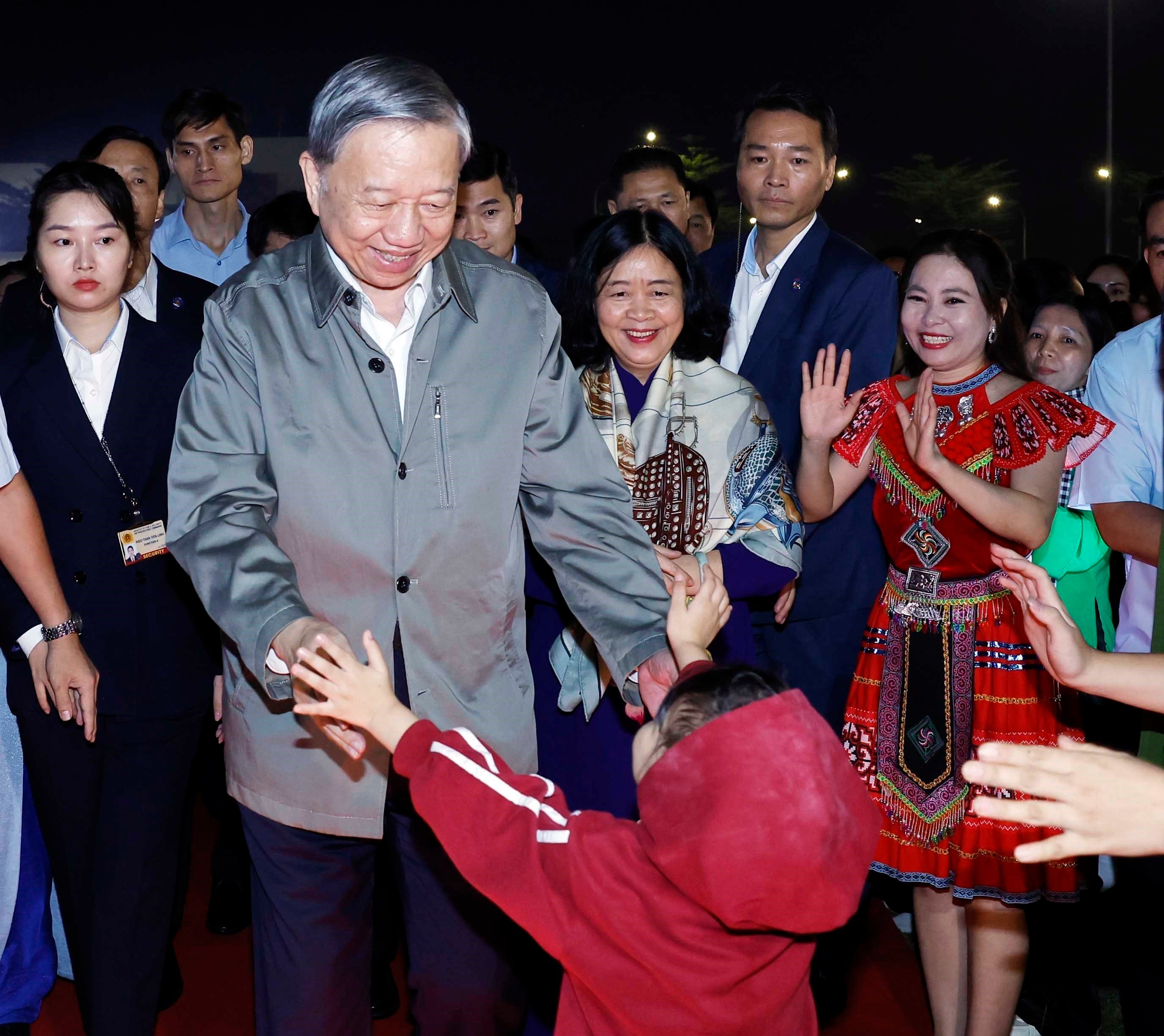
The need to strengthen control of state power in the two-level local government model
Overview of state power control
In political science, “power” is a central concept, approached from many angles. According to Max Weber - German sociologist and historian: power is “the ability of an individual or organization to force others to obey its will, regardless of their consent” (1) . From a legal perspective, power is understood as the ability of a subject to impose its will, control behavior and determine the results of actions of another subject within the framework of an organized society (2) .
The State, in essence, is a public power institution established by the people through elections and entrusted with political power by the people to govern, ensure order and promote the development of society. Power, when institutionalized by the constitution and laws, becomes state power - a form of public power with legal nature, guaranteed to be enforced through the system of state agencies and legal coercive tools (3) . Power in general, and state power in particular, is neutral in nature, but can easily be abused by the power holder if there is a lack of an effective control mechanism (4) .
Control of state power is considered as the whole of principles, mechanisms and tools to monitor, limit and regulate the exercise of state power, ensuring that the power entrusted by the people is used for the right purpose, within limits and for the public interest (5) . This is not only a technical issue of power organization but also a manifestation of modern democratic governance and rule of law, in which the people play a central role, are the supreme subjects of power (6) .
From a structural perspective, state power can be controlled through three basic mechanisms: (i) Horizontal control - between agencies holding legislative, executive and judicial power, based on the principles of division of labor, coordination and mutual control; (ii) Vertical control - between the central and local levels, expressed through the relationship of supervision, inspection, examination and accountability in the administrative system; (iii) External control - carried out by social organizations, the press, businesses, citizens and the community, with the goal of criticizing and promoting transparency and accountability of the public apparatus (7) . Among these three mechanisms, external control of state power (or from society) plays a special role in today's world - when the requirement to democratize political life and improve people's supervisory capacity becomes an inevitable trend of modern governance in every country (8) . It should be noted that social control of state power does not weaken state power, but on the contrary, helps to strengthen the legitimacy and effectiveness of the state, because the power used by the state can only be considered legitimate when the subject using the power is supervised and accountable to the people.
The need to strengthen control of state power in the two-level local government model in our country
In Vietnam, the idea of power control has been affirmed throughout the Party's documents and institutionalized by the State in the Constitution and laws. The principle of power control has been specified in the Document of the 12th National Congress (2016), which requires clearly defining the mechanism of power control in general, the powers and responsibilities of state agencies and government levels (9) . The 13th National Congress of the Party continues to emphasize the need to strengthen control of state power, improve accountability, prevent and combat corruption and negativity (10) . Article 2 of the 2013 Constitution (amended and supplemented in 2025) clearly states: "State power is unified, with division of labor, coordination and control among agencies in the exercise of legislative, executive and judicial powers". Thus, it can be affirmed that, in the context of building a socialist rule-of-law state in Vietnam, power control has been of interest to the Party and State. This is consistent with the widespread view of the international community that checks on power are a core tool to ensure democracy, integrity and effective public administration.
Since the 2013 Constitution, the Vietnam Fatherland Front has been recognized as a power monitoring institution in the state power control system, both at the central and local levels. This role was stipulated in Article 9 of the 2013 Constitution (before the amendments and supplements in 2025), when the Front was assigned to carry out “social supervision and criticism, and participate in Party and State building”. However, the implementation of the provisions in practice still has many limitations due to many subjective and objective reasons (11) .
The organization of local government according to the two-level model (province - commune) stipulated in the 2013 Constitution (amended and supplemented in 2025) is an important step forward in reforming the national governance institution in our country. This model aims to streamline the apparatus, clearly define functions and tasks, thereby improving the effectiveness and efficiency of national governance. However, reducing the administrative intermediate level also means reducing one level of internal control (district level), causing potential risks to the control of state power at the grassroots level if there is no additional design from the external control mechanism (12) . In that context, the Vietnam Fatherland Front needs to be strengthened to become an effective power monitoring institution, contributing to ensuring the effectiveness and efficiency of state power control, especially at the local level.
The current status of the role of the Vietnam Fatherland Front in controlling state power at the local level
Political, legal and instrumental foundations
In the power control system in Vietnam, in addition to the control mechanism within the state apparatus (control between agencies exercising legislative, executive, and judicial powers; inspection, examination, audit, judicial control, between the central government and local governments), the Constitution and laws recognize the role of social control, especially through the Vietnam Fatherland Front. Article 9 of the 2013 Constitution (amended and supplemented in 2025) stipulates: “The Vietnam Fatherland Front is the political base of the people's government; represents and protects the legitimate and legal rights and interests of the people; gathers and promotes the strength of great national unity, practices democracy, strengthens social consensus; supervises and responds to social criticism,…”. On December 12, 2013, the Politburo issued Decision No. 217-QD/TW, “On promulgating the Regulations on social supervision and criticism of the Fatherland Front Vietnam and socio-political organizations", Satisfied clearly stated: “Social supervision and criticism” is the social supervision and criticism of the Vietnam Fatherland Front and socio-political organizations (13) . Next, the Politburo issued Decision No. 218-QD/TW on the participation of the Vietnam Fatherland Front and organizations in giving opinions on building the Party and the government (14) . In particular, the Document of the 13th National Party Congress emphasized: “Perform well the role of social supervision and criticism, represent and protect the legitimate and legal rights and interests of union members and members, actively participate in building the Party and the State” (15) .
Thus, the core tools of the Vietnam Fatherland Front to participate in controlling state power are social criticism and social supervision, in which social criticism is reflected in the Fatherland Front's contribution of opinions and social appraisal of draft policies, plans, and normative documents of the Party and State before promulgation, in order to prevent policy risks, ensure constitutionality, legality, and suitability to reality. Meanwhile, social supervision is reflected in the Fatherland Front's monitoring and evaluation of the implementation of policies and laws by state agencies, thereby detecting violations, recommending corrections, handling responsibilities, and reforming procedures. These two functions create an evidence-based "policy feedback loop", in line with the international trend of building open government and social responsibility (16) .
The enactment of the two-tier local government model in the 2013 Constitution (amended and supplemented in 2025) is an important institutional reform step, helping to streamline the apparatus, improve operational efficiency and save costs, significantly changing the structure of state power at the local level. This model also poses challenges in ensuring the effectiveness of the power control mechanism at the local level, especially in the relationship between local government agencies and between the government and the people. In that context, the need to strengthen the monitoring mechanism of the Vietnam Fatherland Front and other non-state actors becomes urgent. The Vietnam Fatherland Front needs to be strengthened to play a central role in the mechanism of controlling power from outside the state apparatus, through effectively implementing the function of supervision and social criticism as stipulated in Article 9 of the 2013 Constitution. Looking more broadly, when there is no longer a district level, it is necessary to strengthen the connecting role between the government and the people at the grassroots level of the Vietnam Fatherland Front and social organizations to promptly and fully reflect the opinions and aspirations of the people and help to warn early about the risk of law violations by the state apparatus.
Achievements and limitations
As a socio-political organization representing all classes of people and the political basis of the people's government, the Vietnam Fatherland Front has made important contributions to controlling state power at the local level. Implementing Decision No. 217-QD/TW and Decision No. 218-QD/TW of the Politburo (11th tenure) on social supervision and criticism, the Vietnam Fatherland Front has monitored the implementation of policies and laws by local governments at all levels through many forms. The Vietnam Fatherland Front also regularly organizes to collect people's opinions on draft laws. Through the supervision process, the Vietnam Fatherland Front at all levels has promptly detected weaknesses, errors, and lack of responsibility in the management, operation, and performance of tasks of state agencies, causing trouble and damage to people , organizations, and businesses; At the same time, detect unreasonable and unfeasible policies and laws to make recommendations for amendments and supplements suitable to reality (17) .
The role of social criticism of the Vietnam Fatherland Front has been increasingly affirmed through the fact that the Vietnam Fatherland Front Committee and its member organizations at all levels have organized comments, reflections, and recommendations to the People's Councils and People's Committees at all levels on draft policies, plans, and projects related to the legitimate rights and interests of the people, organizations, and enterprises. The social criticisms of the Vietnam Fatherland Front at all levels in recent times have been highly appreciated by public opinion, and many of the criticisms have been accepted by the drafting agencies of the People's Committees, departments, and branches during the editing process (18) . Socio-political organizations under the Fatherland Front at the local level have gradually improved the effectiveness of social criticism work, such as the Central Committee of the Ho Chi Minh Communist Youth Union... With the role of "an organization representing the voice and aspirations of children and supervising the implementation of children's rights according to children's opinions and aspirations" (Article 77, Law on Children 2016), the Central Committee of the Ho Chi Minh Communist Youth Union has effectively implemented activities to promote children's participation in children's issues at the local level, established 27 provincial children's councils, 64 district children's councils, and 26 commune children's councils (19) . Along with organizing regular meetings, many provinces and cities have organized conferences, meetings, and direct dialogues between children's councils and leaders of the provincial Party Committee and provincial People's Council, creating opportunities for children to directly propose opinions and recommendations to leaders (20) . Some opinions and recommendations related to children were proposed by the National Assembly delegations and the provincial People's Councils to the departments, branches, and mass organizations for consideration and resolution. Model of the hypothetical session of the "Children's National Assembly" organized (2023, 2024) to bring practical results, which is the basis for all levels to issue policies (21) .
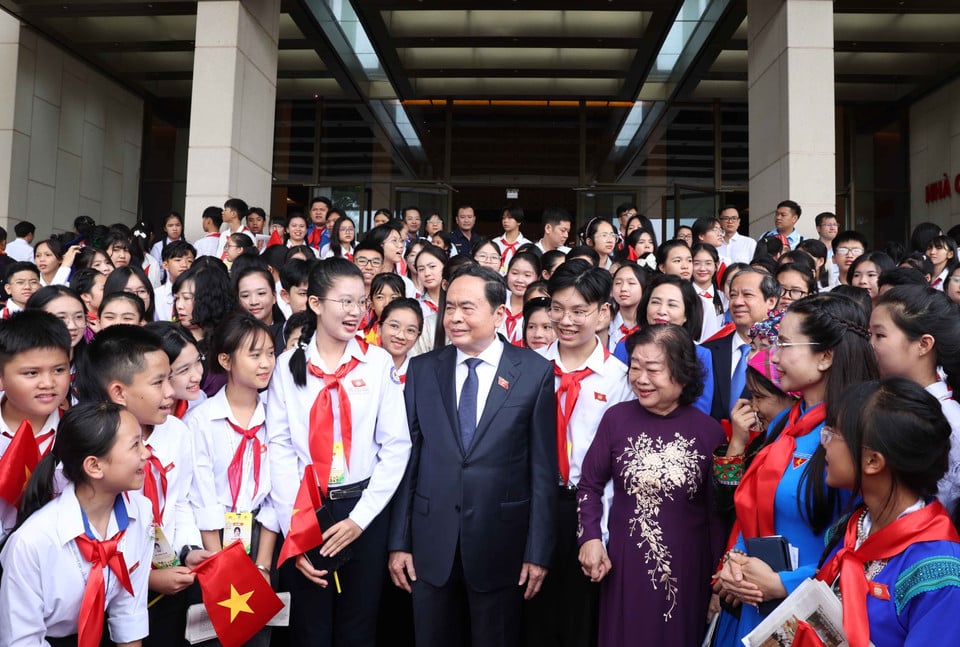
However, in general, the effectiveness and efficiency of the monitoring and social criticism activities of the Vietnam Fatherland Front and some member organizations have not really met the requirements and expectations of the people, specifically as follows:
Firstly, the scope of subjects, content of supervision and social criticism is not complete and comprehensive. In reality, the activities of the Fatherland Front and its member organizations still have a situation of "leaving blank" supervision of some important areas, such as the management and operation of the People's Council, People's Committee and judicial agencies.
Second , the monitoring and social criticism activities of the Vietnam Fatherland Front and its member organizations in many places are still formalistic, with low quality and effectiveness. Social criticism has not covered all draft policies, laws and important projects of agencies in the state apparatus.
Third , the coordination between the Fatherland Front at all levels and its member organizations; between the object of criticism (the Fatherland Front) and the agencies and organizations receiving criticism (people's committees and people's councils at all levels) is not good. Many recommendations of the Fatherland Front to local state agencies have not been received and responded to promptly.
The reasons leading to the above limitations and shortcomings include:
Firstly, the position and role of social supervision and criticism of the Vietnam Fatherland Front and its member organizations are sometimes underestimated. The Vietnam Fatherland Front and its member organizations in some localities have not fully understood the significance of social supervision and criticism activities, and have not attached importance to their own supervision and criticism rights, leading to supervision and criticism activities being limited to the work program of the Vietnam Fatherland Front, not promoting the combined strength of member organizations; supervision activities sometimes show signs of being afraid of conflicts.
Second, the legal framework on social supervision and criticism of the Vietnam Fatherland Front and its member organizations currently lacks many necessary contents, while some regulations are still at the principle level and have not been guided in detail, making application and implementation difficult. Specifically:
There are still gaps in scope and authority: The 2013 Constitution and the Law on the Vietnam Fatherland Front recognize the function of "social supervision and criticism" of the Vietnam Fatherland Front, but have not clearly defined the scope, subjects, limits and authority of supervision and criticism in each field (legislative, executive, judicial; finance - budget; planning - land; basic public services, etc.), leading to a situation where the Vietnam Fatherland Front has different understandings and applications in each locality. The legal status and qualifications to participate in supervision and criticism of the Vietnam Fatherland Front in important processes (drafting normative documents, formulating and appraising public investment projects, deciding on planning policies, etc.) have not been legalized as a subject with mandatory consultation rights, leading to the situation where criticism occurs late (at the end of the process) and loses its topicality ("at the right time").
The law has not yet provided for a unified process for planning, selecting topics, collecting evidence, impact assessment methods, standardizing reports, and mandatory response deadlines for state agencies to supervisory recommendations and criticisms of the Vietnam Fatherland Front. In addition, the lack of data standards and information access mechanisms of state agencies also reduces the quality of evidence and the persuasiveness of the supervision and social criticism activities of the Vietnam Fatherland Front (22) .
Third , although the Constitution has stipulated the role of social criticism of the Fatherland Front for agencies in the state apparatus, ensuring human resources and finance for this activity of the Fatherland Front has not been given due importance. The current financial mechanism does not ensure that the Fatherland Front can carry out proactive and regular supervision and criticism activities. Social supervision and criticism of the Fatherland Front has a wide scope, high requirements, requiring cadres with knowledge of many fields, while human resources are limited. When converting to a two-level local government model, the number of Fatherland Front cadres and socio-political organizations at the commune level is still lacking, while the area is larger than before, some administrative units have high population density, making it even more difficult to find human resources for the Fatherland Front's supervision and social criticism activities.
Solutions to strengthen the role of state power control of the Vietnam Fatherland Front in the two-level local government model
The role of controlling state power of the Vietnam Fatherland Front and its member organizations when implementing the two-level local government model is very necessary and needs to be focused on through the following solutions:
First, continue to strengthen the constitutional basis for controlling state power.
On a macro level, In the context of the Constitution continuing to be perfected, the State needs to continue to study and add a provision on "power control" to Chapter I of the Constitution to ensure that the mechanism for ensuring state power is operated more effectively. Currently, although there are provisions on the control of central agencies in the implementation of legislative, executive and judicial powers (Article 2), the 2013 Constitution does not have a separate provision on state power control. Adding a separate provision on power control to the Constitution has constitutional significance and is the basis for the entire legal system to specify the institutions of inspection, supervision and social criticism. Among other aspects, the content of the additional provision of the Constitution on "power control" should affirm: "State power must be strictly controlled by mechanisms inside and outside the state apparatus".
Second, continue to strengthen the role of supervision and social criticism of the Vietnam Fatherland Front.
Article 9 of the 2013 Constitution (amended and supplemented in 2025) stipulates the right to supervise and provide social criticism of the Vietnam Fatherland Front. However, to ensure that the Fatherland Front can perform that role well, specialized laws need to clearly stipulate The right to supervise and provide social criticism of the Vietnam Fatherland Front is a separate form of control power, of a constitutional nature, and at the same time supplements the obligations of state agencies in responding to, explaining and taking responsibility for the supervision recommendations and criticisms of the Vietnam Fatherland Front. In addition, specialized laws need to stipulate that the Vietnam Fatherland Front and its member organizations have the right to request the temporary suspension of administrative decisions and administrative acts of state management agencies that violate the legitimate rights and interests of the people.
Third, strengthen the mechanism of horizontal control of local state power.
In the context of the local government organization operating under a two-tier model, stronger decentralization to localities is coupled with the urgent need to establish effective power control mechanisms according to the motto: "Locals decide, local authorities do, local authorities are responsible". In essence, this content requires strengthening the horizontal state power control mechanism, because if this mechanism is weak, the risk of power abuse at the local level is very likely to occur, especially when the People's Committee is both an administrative management agency and directly manages financial issues, personnel work, public investment, public services, etc.
To strengthen the horizontal power control mechanism, it is necessary to enhance the role and capacity of the People's Council and the Vietnam Fatherland Front. This requires amending and supplementing specialized laws in the direction of more specific regulations on the organizational structure of the Front and corresponding social organizations at each level of government (province, commune), as well as clarifying the coordination mechanism, participating in inspection, supervision, and criticism of the activities of the People's Council and People's Committee to fill institutional gaps in power supervision. Supplementing the mechanism to allow organizations to exercise the right to petition to compel local authorities to consult voters in the process of drafting legal documents and policies related to people's rights.
Fourth, strengthening the capacity of the Vietnam Fatherland Front at the local level
It is necessary to promulgate a separate law on social supervision and criticism of the Vietnam Fatherland Front and its member organizations to concretize the principles recorded in the Politburo's resolutions, the Constitution and the current Law on the Fatherland Front. The law needs to clearly stipulate the subjects empowered to supervise, the scope and form of supervision, the process of criticism, and the mandatory accountability of state agencies. The legalization will overcome the limitations of the current state of supervision and criticism activities of the Vietnam Fatherland Front.
It is necessary to improve the implementation capacity and professionalize the monitoring activities of the Vietnam Fatherland Front and socio-political organizations at the grassroots level. In practice, most of the cadres of the Vietnam Fatherland Front and socio-political organizations at the commune and ward levels currently lack professional skills, lack support tools and are not properly trained in monitoring and criticism skills, especially monitoring in the field of public administration. Therefore, it is necessary to arrange more cadres for the Vietnam Fatherland Front and socio-political organizations specializing in monitoring and social criticism. It is necessary to establish a coordination mechanism between the Vietnam Fatherland Front and other monitoring institutions in the political system, such as the state inspectorate, state audit, people's councils at all levels and develop inter-sectoral monitoring programs, especially in sensitive areas, such as budget use, public investment, land, planning, construction, etc.
Strengthening the application of digital technology in social supervision and criticism. This requires the construction of online platforms to receive people's feedback and recommendations, update monitoring results, settlement status, responses from state agencies, and establish interactive maps of people's livelihood issues to contribute to transparency in the entire cycle of state power control by the Vietnam Fatherland Front and social organizations.
There needs to be a mechanism for allocating the state budget reasonably for monitoring and social criticism activities at the grassroots level, linked with accountability, avoiding the situation of "supervision depending on the supervised object". At the same time, the Fatherland Front is empowered to evaluate and propose disciplinary action against groups and individuals who do not cooperate, do not explain or deliberately avoid responding to the monitoring and criticism recommendations of the Fatherland Front and socio-political organizations.
Organizing local government according to a two-tier model is an important step in institutional reform, contributing to streamlining the apparatus and improving the effectiveness of state governance. In that context, it is necessary to strengthen the mechanism of controlling power from outside the state agency system, especially enhancing the role of the Vietnam Fatherland Front.
To ensure real power control, in addition to constitutionalizing the role of social supervision and criticism of the Vietnam Fatherland Front and socio-political organizations, it is necessary to promulgate the Law on Social Supervision and Criticism. Perfecting the coordination mechanism, improving the capacity of officials and applying technology in social supervision and criticism. When a harmonious power control mechanism between the State and society is established, it will contribute to helping the two-level local government model operate effectively, meeting the requirements of building a socialist rule-of-law state of Vietnam in the new period./.
---------------------------
(1) Max Weber (translated by Guenther Roth and Claus Wittich): Economy and Society , University of California Press, Berkeley, 1978, pp. 53-54
(2) Robert A. Dahl: Modern Political Analysis , 7th ed. Englewood Cliffs, NJ: Prentice Hall, 2003, pp. 34-36
(3) See: Nguyen Dang Dung: State power and power control mechanism in Vietnam , National Political Publishing House, Hanoi, 2019, pp. 22-24
(4) Joseph Nye: The Future of Power , PublicAffairs, New York, 2011, p. 56
(5) See: Tran Ngoc Duong: "Controlling state power - An objective requirement in building a rule-of-law state", Journal of Legislative Studies, 12 (2020), pp. 3-9
(6) Jon Pierre and B. Guy Peters: Governance , Politics and the State, Palgrave Macmillan, London, 2000, pp. 14-15
(7) Mark Bevir: A Theory of Governance, University of California Press, Berkeley, 2013, pp. 61-64
(8) See: Nguyen Si Dung: “Controlling power in a rule of law state”, Communist Magazine, 3 (2016), pp. 18-25
(9) Documents of the 12th National Congress of Delegates, National Political Publishing House, Hanoi, 2016, p.187
(10) Documents of the 13th National Congress of Delegates, National Political Publishing House Truth, Hanoi, 2021, pp. 233-235
(11) Central Committee of the Vietnam Fatherland Front: Report on social supervision and criticism for the period 2018 - 2023, Hanoi, 2024
(12) See: Nguyen Huu Dung: “Organizing two-level local government: Opportunities and challenges”, State Management Journal, 10 (2024), pp. 21-29.
(13) Politburo: Decision No. 217-QD/TW, dated December 12, 2013, promulgating the Regulations on supervision and social criticism of the Vietnam Fatherland Front and socio-political organizations, Communist Party of Vietnam Electronic Information Portal, https://tulieuvankien.dangcongsan.vn/he-thong-van-ban/van-ban-cua-dang/quyet-dinh-so-217-qdtw-ngay-12122013-cua-bo-chinh-tri-ban-hanh-quy-che-giam-sat-va-phan-bien-xa-hoi-cua-mat-tran-to-178
(14) Politburo: Decision 218-QD/TW, dated December 12, 2013, promulgating regulations on the participation of the Vietnam Fatherland Front, socio-political organizations and people in giving opinions on Party building and government building, Communist Party of Vietnam Electronic Information Portal, https://tulieuvankien.dangcongsan.vn/he-thong-van-ban/van-ban-cua-dang/quyet-dinh-218-qdtw-ngay-12122013-cua-bo-chinh-tri-ban-hanh-quy-dinh-ve-viec-mat-tran-to-quoc-viet-nam-cac-doan-the-chinh-237
(15) Documents of the 13th National Congress of Delegates, ibid. , pp. 233 - 235
(16) See: OECD: Open Government Review: Enhancing Civic Participation and Accountability, OECD Publishing, Paris, 2022, 44 - 47.
(17), (18), Vietnam Fatherland Front Committee: Report No. 43/BC-MTTQ-BTT, dated January 25, 2025, on "Results of implementing social supervision and criticism work in 2024".
(19) See: Central Youth Union Secretariat: Report on the implementation of the Project "Ho Chi Minh Communist Youth Union promotes children's participation in children's issues for the period 2023 - 2027" and Conclusion of the Central Youth Union Secretariat on strengthening the implementation of the "Children's Council" model for the period 2023 - 2027.
(20) See: Central Council of Young Pioneers: Report on summarizing the work of Young Pioneers and children's movements in 2023 and 2024.
(21) See: Central Youth Union Secretariat: Report on summarizing the work of the Youth Union and youth movements for the 2023-2024 and 2024-2025 school years.
(22) OECD: Open Government Review: Enhancing Civic Participation and Accountability, OECD Publishing, Paris, 2022, 44 - 47.
Source: https://tapchicongsan.org.vn/web/guest/chinh-tri-xay-dung-dang/-/2018/1170602/phat-huy-vai-tro-kiem-soat-quyen-luc-nha-nuoc-cua-mat-tran-to-quoc-viet-nam-trong-mo-hinh-chinh-quyen-dia-phuong-hai-cap.aspx










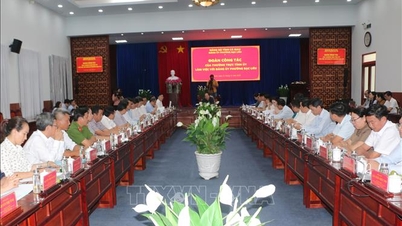

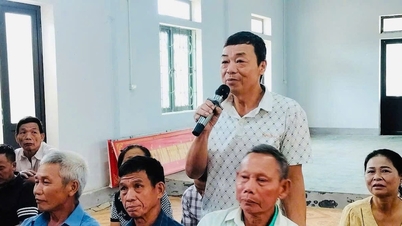

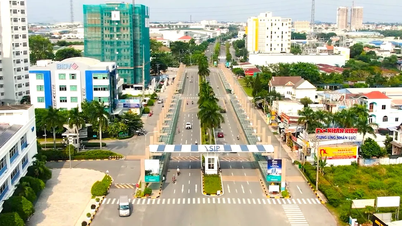

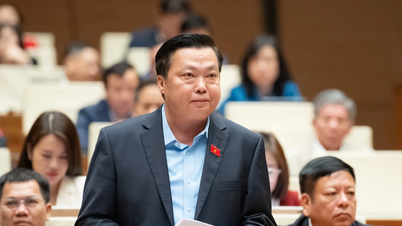

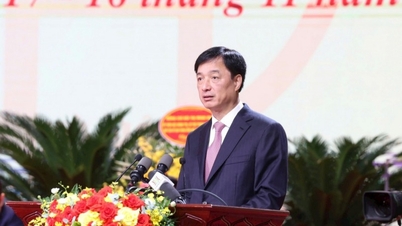

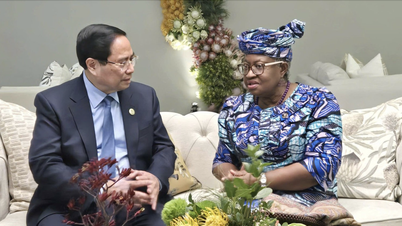

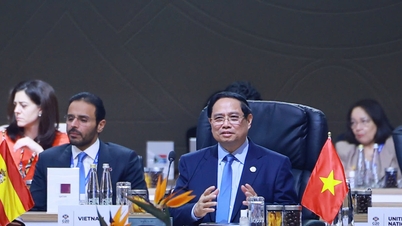
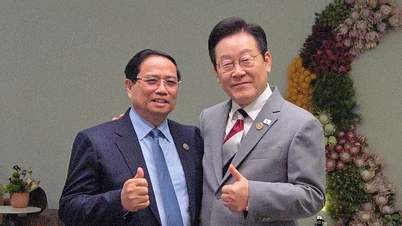
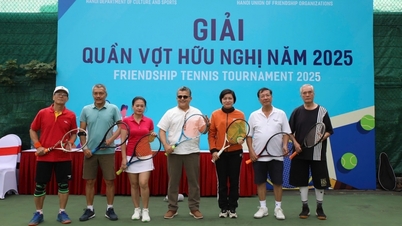

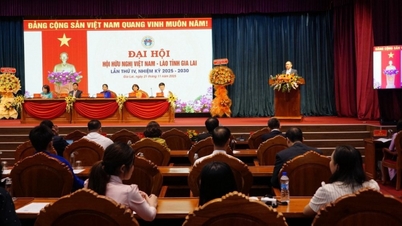







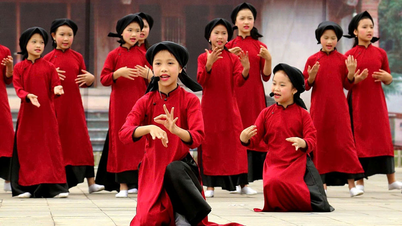







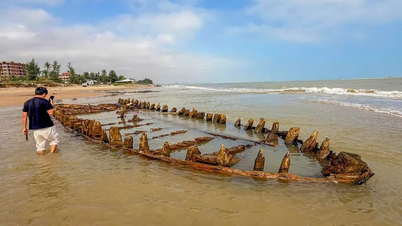
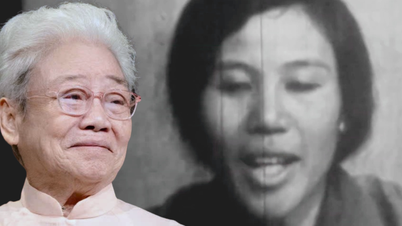



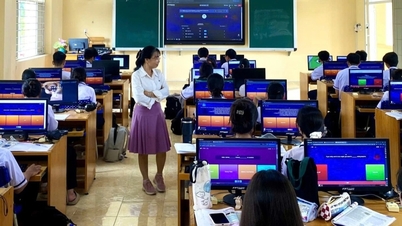

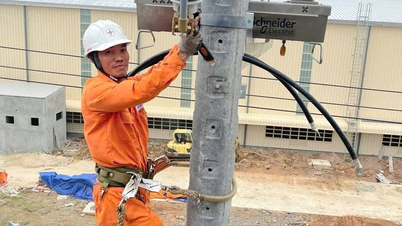

















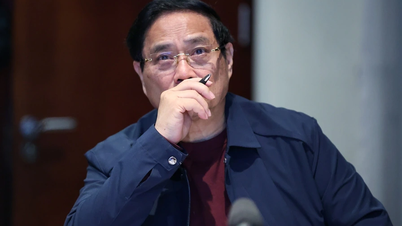
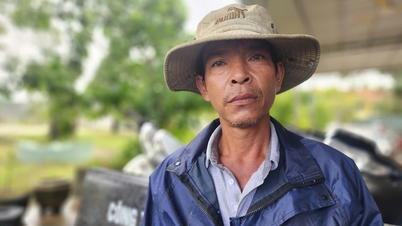
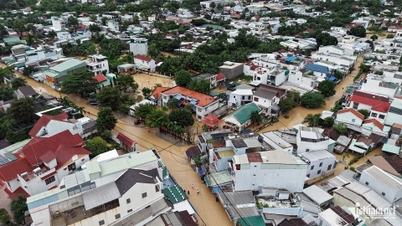





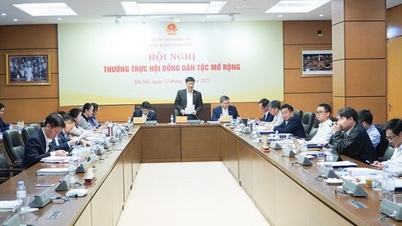
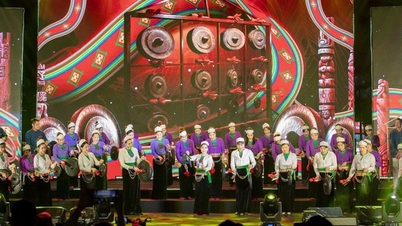



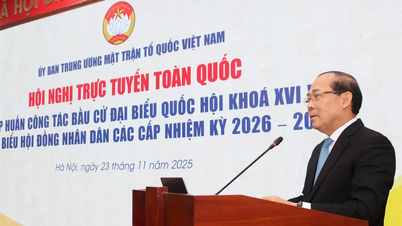
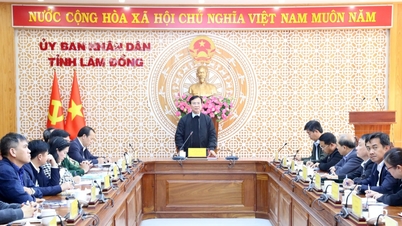





















Comment (0)